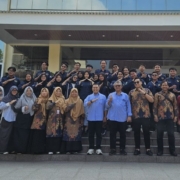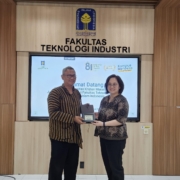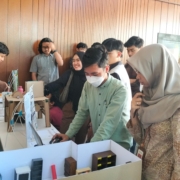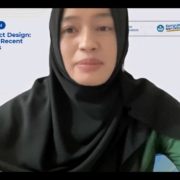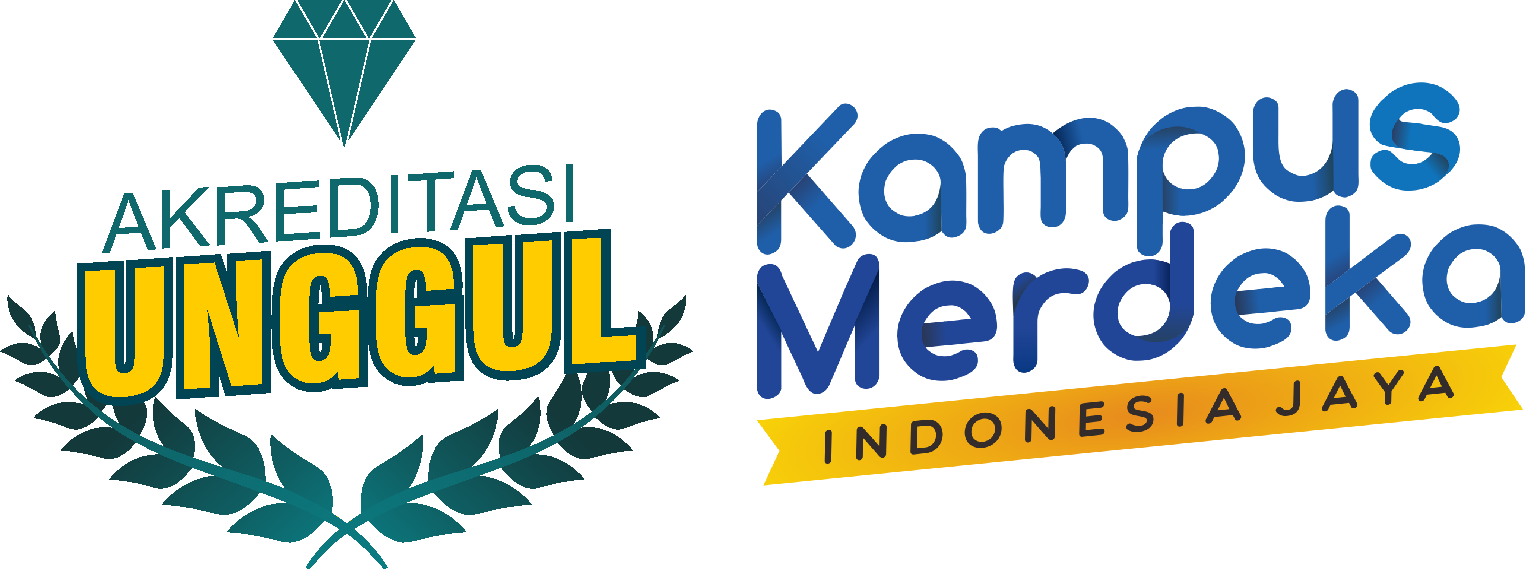Gaming and Ergonomics: Industrial Engineering UII Explores Focus and Relaxation in the Gaming World
Event Introduction and Speaker Profile
On Friday (31/10/2025), the Industrial Engineering Study Program of the Faculty of Industrial Technology (FTI), Universitas Islam Indonesia (UII), held another national webinar via Zoom Meeting. To begin with, the organizers presented the theme “Between Focus and Relaxation in the Gaming World” and invited Ratih Dianingtyas Kurnia, S.T., Ph.D. as the keynote speaker. Meanwhile, Sekar Hutami took the role of Master of Ceremony (MC), and Zahra Rafida led the discussion as the moderator. As a result, students and lecturers joined the session in order to gain deeper insights into ergonomics, mental health, and cognitive performance in gaming, including how gaming habits influence the body and one’s ability to focus.
Furthermore, The event began with the agenda reading, the singing of Indonesia Raya and the UII Hymn, followed by a group photo session. After that, the moderator introduced the speaker and shared her profile. She highlighted the speaker’s research in ergonomics and mental workload analysis. Consequently, participants were able to understand the context of the material more clearly.
Focus or Relaxation? Here’s What the Expert Says
During the main presentation, Ratih Dianingtyas Kurnia showed participants how playing games influences their focus and relaxation levels. Moreover, she emphasized the importance of understanding the physical and mental workload during gameplay. This is especially important for games that demand high concentration.
Ratih encouraged players to enjoy gaming safely, even in today’s digital world. She argued that games can train the brain in problem solving and stress management when played in moderation. Furthermore, she added that factors such as play duration, body posture, and game intensity significantly influence a gamer’s physical and mental well being. “Gaming can be a way to focus and relax at the same time, as long as we understand our limits and maintain balance,” she said.
She further explained that competitive gamers, such as Valorant or Dota players, face higher mental workloads because the games demand intense concentration and peak performance. In contrast, casual games tend to promote relaxation, although they still require a certain level of attention. Physiologically, gaming can keep brain wave activity within healthy limits when players manage their play duration and intensity properly. Ratih also reminded participants to take micro breaks every 15–20 minutes. She advised them to apply ergonomic principles when arranging seating, lighting, and devices.
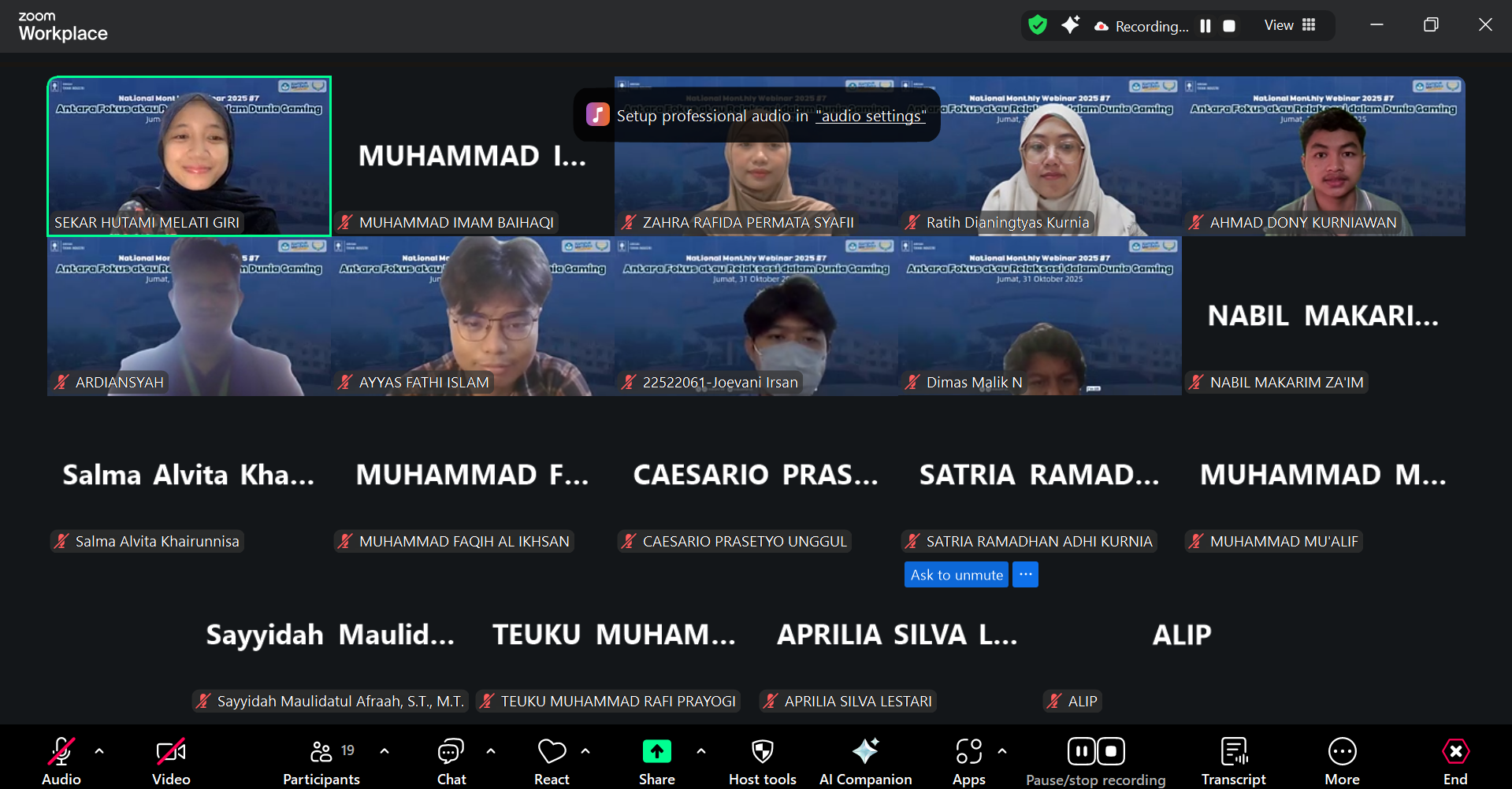
Participants Engage with the Speaker
During the Q&A session, participants asked about ideal rest intervals during gaming and the use of supportive tools such as back supports. Ratih explained that such tools can improve sitting posture but cannot replace the body’s need for movement and light stretching. She emphasized that the human body has limits when staying in static positions. Therefore, dynamic movements, such as stretching or short walks, are essential.
Encouraging Wise and Balanced Gaming Habits
To conclude her presentation, Ratih encouraged participants to play games wisely. She emphasized that gaming can serve not only as entertainment but also a way to maintain physical and mental balance. She stressed that video games can enhance focus and promote relaxation when played with self awareness and proper time management.
“Video games can be a positive medium when played smartly, in moderation, and with attention to physical health.”
Finally, the event ended with attendance confirmation and closing remarks from the MC.
Albin M Wiryawan


 IP IE UII
IP IE UII 
